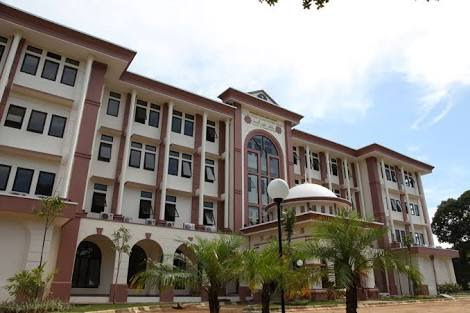ENHANCING MATHEMATICS LITERACY IN VOCATIONAL SCHOOLS: THE KEY ROLE OF PEDAGOGICAL CONTENT KNOWLEDGE (PCK) AMONG TEACHERS
MENINGKATKAN LITERASI MATEMATIKA DI SMK: PERAN KUNCI PENGETAHUAN KONTEN PEDAGOGIS (PCK) DI KALANGAN GURU
Abstrak
Abstrak:
Pedagogical Content Knowledge (PCK) merupakan kemampuan yang sangat diperlukan dalam rangka meningkatkan kemampuan literasi matematika siswa. Maka dari itu dalam penelitian ini diuraikan secara mendalam mengenai kemampuan Pedagogical Content Knowledge (PCK) guru dan keterkaitan kemampuan tersebut dalam membangun literasi matematika. Jenis penelitian yang digunakan adalah mixed method dengan teknik pengumpulan data yang menggunakan triangulasi yakni wawancara, observasi, dan pemberian angket. Hasil penelitian menunjukkan bahwa Pedagogical Content Knowledge (PCK) masih berada pada level 1 dari komponen pengetahuan mengajar, komponen pengetahuan tentang siswa, maupun komponen pengetahuan tentang konten. Selain itu juga ditemukan bahwa Pedagogical Content Knowledge (PCK) guru memiliki keterkaitan dengan kemampuan literasi matematika peserta didik. Semakin bagus kemampuan Pedagogical Content Knowledge (PCK) guru maka potensi siswa untuk memiliki kemampuan literasi matematika yang baik cenderung lebih besar. Salah satu model pembelajaran yang dibutuhkan dalam meningkatkan kemampuan literasi peserta didik adalah model pembelajaran yang mampu mengakomodasi berbagai perbedaan karakteristik siswa termasuk perbedaan kecerdasan.
##plugins.generic.usageStats.downloads##
Referensi
Anwar. (2014). Metode penelitian. Yogyakarta: Pustaka Pelajar.
Ball, D. L., Thames, M. H., & Phelps, G. C. (2008). Content knowledge for teaching what makes it special? Journal of Teacher Education, 59(5), 389–407. https://doi.org/10.1177/0022487108324554.
Berry, A., Depaepe, F., & Driel, J. van. (2016). Pedagogical content knowledge in teacher education. Springer. https://doi.org/10.1007/978-981-10-0366-0_9.
Edo, S. I., Putri, R. I. I., & Hartono, Y. (2013). Investigating secondary school students’ difficulties in modeling problems PISA-model level 5 and 6. Journal on Mathematics Education, 4(1), 41–58. https://doi.org/10.22342/jme.4.1.561.41-58.
Ekawati, R., Susanti, & Chen, J. C. (2020). Primary students’ mathematical literacy: a case study. Infinity Journal, 9(1), 49–58. https://doi.org/10.22460/infinity.v9i1.p49-58.
Ekmekci, A. (2015). Are we measuring it accurately: mathematical literacy in the PISA context? In The 2015 Annual Meeting of AERA (pp. 1–8). Retrieved from https://rusmp.rice.edu/sites/g/files/bxs3761/files/inline-files/2015%20AERA_PISA%20article.pdf.
Fadillah, A., & Ni’mah, N. (2019). Analisis literasi matematika siswa dalam memecahkan soal matematika pisa konten change and relationship. JTAM (Jurnal Teori Dan Aplikasi Matematika), 3(2), 127–131. https://doi.org/10.31764/jtam.v3i2.1035.
Funny, R. A. (2014). Students’ initial understanding of the concept of conservation of area. IndoMS Journal of Mathematics Education, 5(1), 57–65. Retrieved from https://files.eric.ed.gov/fulltext/EJ1079623.pdf.
Gatbonton, E. (2008). Looking beyond teacher’ classroom behaviour: novice and experienced ESL teachers’ pedagogical knowledge. Language Teaching Research, 12(2), 161–182. https://doi.org/10.1177/1362168807086286.
Hayat, B. (2010). Literacy of our youngsters: results and restraints from PISA. International Journal of Education, 5(1), 1–16. Retrieved from https://www.learntechlib.org/p/208986/.
Hayati, T. R., & Kamid. (2019). Analysis of mathematical literacy processes in high school students. International Journal of Trends in Mathematics Education Research (IJTMER), 2(3), 116–119. https://doi.org/10.33122/ijtmer.v2i3.70.
Janaha, S. R., Suyitnob, H., & Rosyida, I. (2019). Pentingnya literasi matematika dan berpikir kritis matematis dalam menghadapi abad ke-21. PRISMA, Prosiding Seminar Nasional Matematika, 2, 905–910.
Julie, H., Suwarsono, S., & Juniati, D. (2014). Understanding Profile from the philosophy, principles, and characteristics of RME. Journal on Mathematics Education, 5(2), 148–159. https://doi.org/10.22342/jme.5.2.1499.148-159.
Karahasan, B. (2010). Pre-service secondary mathematics teachers’ pedagogical content knowledge of composite and inverse functions. Middle East Technical University.
Kurniawati, N. D. L., & Mahmudi, A. (2019). Analysis of mathematical literacy skills and mathematics self-efficacy of junior high school students. Journal of Physics: Conference Series, 1320, 1–6. https://doi.org/10.1088/1742-6596/1320/1/012053.
Kyttala, M., & Bjorn, P. M. (2014). The role of literacy skills in adolescents’ mathematics word problem performance: Controlling for visuo-spatial ability and mathematics anxiety. Learning and Individual Differences, 29, 59–66. https://doi.org/10.1016/j.lindif.2013.10.010.
Manoy, T., & Indarasati, N. A. (2017). The computer student worksheet based mathematical literacy for statistics. Journal of Physics Conference Series, 953, 1–10. https://doi.org/10.1088/1742-6596/953/1/012213.
Martin, F. (2008). Knowledge bases for effective teaching: Beginning Teachers’ Development As Teachers of Primary Geography. International Research in Geographical and Environmental Education, 17(1), 13–39. https://doi.org/10.2167/irgee226.0.
Murtiyasa, B. (2016). Isu-isu kunci dan tren penelitian pendidikan matematika. Konferensi Nasional Penelitian Matematika Dan Pembelajaran (KNPMP I), 1–10. Retrieved from https://proceedings.ums.ac.id/index.php/knpmp/article/download/24%0A26/2381.
Neumann, K., Kind, V., & Harms, U. (2019). Probing the amalgam: The relationship between science teachers’ content, pedagogical and pedagogical content knowledge. International Journal of Science Education, 41(7), 847–861. https://doi.org/10.1080/09500693.2018.1497217.
OECD. (2019). Assessment and analytical framework. OECD Publishing.
Ojose, B. (2011). Mathematics literacy: We able to put the mathematics we learn into everyday use. Journal on Mathematics Education, 4(1), 89-100. Retrieved from https://educationforatoz.com/images/8.Bobby_Ojose_--_Mathematics_Literacy_Are_We_Able_To_Put_The_Mathematics_We_Learn_Into_Everyday_Use.pdf.
Rafianti, I., Setiani, Y., & Novaliyosi, N. (2018). Profil kemampuan literasi kuantitatif calon guru matematika. JPPM: Jurnal Penelitian Dan Pembelajaran Matematika, 11(1), 63–74. https://doi.org/10.30870/jppm.v11i1.2985.
Ridzkiyah, N., & Effendi, K. N. S. (2019). Analisis kemampuan literasi matematis siswa sma dalam menyelesaikan soal program for international student assessment (PISA). Jurnal Ilmiah Pendidikan Matematika, 6(1), 1–13.
Rizki, L. M., & Priatna, N. (2019). Mathematical literacy as the 21st century skill. International Conference on Mathematics and Science Education (ICMScE 2018). https://doi.org/10.1088/1742-6596/1157/4/042088.
Sugiyono. (2014). Metode penelitian pendidikan: Pendekatan kuantitatif, kualitatif, dan R&D. Bandung: Alfabeta.
Sukmadinata, N. S. (2009). Landasan psikologi dan proses pendidikan. Bandung: PT Remaja Rosdakarya.
Trilling, B., & Fadel, C. (2009). 21st century skills: Learning for life in our times. John Wiley & Sons, Inc. Retrieved from https://ardian.id/wp-content/uploads/2018/10/21st_Century_Skills_Learning_for_Life_in_Our_Times____2009-3.pdf.
Ulger, T. K., Bozkurt, I., & Altun, M. (2020). Thematic analysis of articles focusing on mathematical literacy in mathematics teaching-learning process. Education and Science, 45(201), 1–37. https://doi.org/10.15390/EB.2020.8028.
Widjaja, W. (2013). The use of contextual problems to support mathematical learning. Indonesian Mathematical Society Journal on Mathematics Education, 4(2), 157–168. https://doi.org/10.22342/jme.4.2.413.151-159.
##submission.copyrightStatement##
##submission.license.cc.by4.footer##
